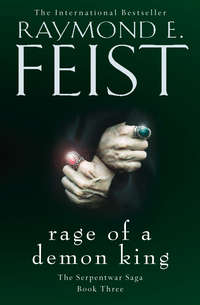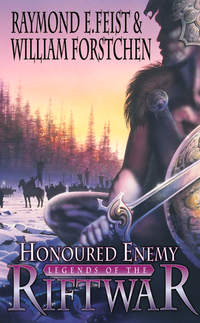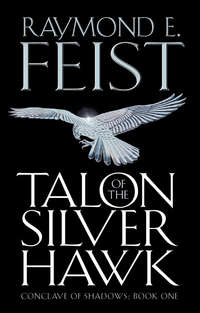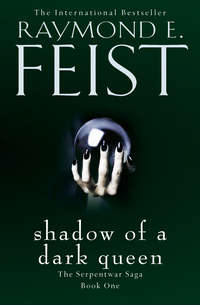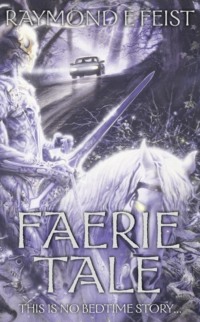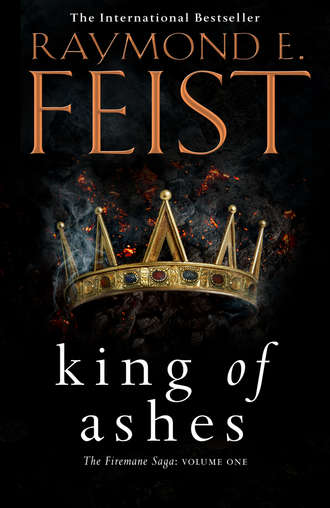
Полная версия
King of Ashes
Balven was an average-looking man of middle height, with close-cropped brown hair and dark eyes; his appearance was unremarkable, but he resembled Daylon in small ways, the set of his jaw, his brow and nose, and how he carried himself. Balven studied his brother’s face as he soaped his body. ‘You are troubled?’ he asked softly. He had anticipated his master’s changeable mood and had a girl waiting in the corner of the tent rather than in Daylon’s bed, as he knew that his brother’s disposition could swing in either direction after a battle. The girl’s brown eyes were fixed upon the Baron of Marquensas, silently awaiting his order.
Daylon considered her for a moment, then shook his head. He felt tired deep in his bones. Balven dismissed her with a tiny motion of his head. She nodded once and silently left.
Daylon watched her depart with no hint of desire. He wished only for a hot meal and a long sleep after today’s bloody work. He endured the cold water and harsh soap; the discomfort was worth the loss of muck and blood. ‘I miss a hot tub,’ he said to Balven as he towelled himself dry.
His bastard half-brother nodded in agreement. ‘I miss home.’
Daylon grunted assent. He also longed for the warm sun on the shores of Marquensas, where his castle overlooked an orchard that ran across the hills and down to the coast of the Western Sea. He missed the rich orange blossom scent on the spring breeze from the ocean and the sheer beauty of his holdfast. He missed his wife’s lithe body and the promise of children. As he donned the robe Balven held for him, Daylon said, ‘Mostly I miss the peace. The sounds of war still ring in my ears.’
‘They echo in mine, as well, my lord,’ agreed Balven. ‘But at least our world didn’t end this day,’ he added in a lighter tone.
Daylon laughed. One of the many things he shared with his half-brother was a love of their father’s library. Balven knew of the legendary Firemane line and the supposed destruction attached to its end. They had almost had an argument before Daylon agreed to participate in Steveren’s betrayal; Balven had contested their joining Lodavico and the others. As was his usual tactic, Balven had argued against the course Daylon had almost certainly already chosen, to explore any failings of logic that the baron might have overlooked; neither man placed much faith in auguries, omens, and prophecies, but after ample wine, the discussion had factored them into the decision, or rather ignoring the legend had, as part of Balven’s last argument on the matter.
‘Food?’
‘I’ll fetch your meal straightaway, my lord.’
Within a few minutes Balven placed a hot plate of beef and vegetables, with some edible bread and a sliver of cheese, next to a full bottle of wine and goblet. He set the small table and departed without instruction. He knew that his half-brother’s mood called for solitude.
Daylon ate alone, his silence broken only by the faint sounds of knackers, scavengers, and body robbers in the distance. Then he fell heavily into bed.
DAYLON HAD A DAGGER IN his hand before he was fully conscious. He listened. It was quiet, though occasionally he made out the shout of a distant sentry or the faint sound of looters arguing over spoils. He heard a rustle in the corner and sat up, blade ready. Had the camp girl returned without bidding? As the fog of sleep lifted, he decided that a camp girl would not lurk in the corner but would have probably slipped into his bed.
Then Daylon heard a strange sound. He took up his night lamp and opened its shutter to illuminate the tent’s interior. In the corner where the girl had waited lay a bundle of cloth, and he could see it moving.
He approached it warily, as he would not be the first noble of Garn to be gifted with a venomous serpent or rabid animal. Then he recognised the noise and knew that the cloth held something far more lethal.
The Baron of Marquensas crouched and pulled aside the covers to see a tiny face looking up at him. He held the light close and saw large blue eyes in a little round face and a forehead crowned with wispy hair, silver-white in the lamplight. In that moment, Daylon was certain that this baby was the last of the Firemanes, as certain as he was of his own name. He guessed that the child’s fine silver-white hair would turn a brilliant copper when it was two or three years old, but around the baby’s neck a woven copper wire had been placed, and from it hung a gold ring set with a single ruby – the signet ring of Ithrace, the king’s ring.
Who had put this child in his tent? How had that person passed his sentries, or stolen past Balven, who slept before his threshold? He gently picked up the child to examine it in the light of his night lamp and saw it was a boy. The child looked into his eyes and Daylon was even more certain that this was the Firemane baby.
Crouching on his heels as the baby watched him silently, Daylon Dumarch, Baron of Marquensas, muttered, ‘Gods old and new, why me?’
ALONG THE SHORE, AWAY FROM the battle site, a man waited by a cluster of rocks. Daylon could see him clearly in the early morning sunlight as they rode slowly towards him.
The man wore a covering over his nose and mouth, leaving only his eyes exposed; the only clue to his identity was the age lines at their corners. Other than that, he appeared to be a common soldier without badge or tabard, but he was a member of the unseen army of Coaltachin, the legendary Invisible Nation.
Coaltachin’s rulers had never affixed their names or their seals to the Covenant, and this exclusion had made them a nation apart, yet they had honoured the pact since its inception. Few nobles and fewer commoners understood the genius of Coaltachin’s security, and their success was due to their Quelli Nascosti, meaning ‘The Hidden’. Coaltachin had the finest spies, infiltrators, saboteurs, and assassins in the world. On the street they were known as sicari, ‘the dagger men’.
The Invisible Nation was publicly loathed and privately employed by every ruler with the means to pay them. They were also universally feared, for legend claimed they could walk through walls, kill with their breath, and become undetectable at will, or at least that was the myth surrounding them. In reality, they were the most effective assassins, spies, and provocateurs on Garn.
The true strength of Coaltachin lay in the extent of its network. It had placed agents everywhere, from the tables of nobility to the gutter gangs of the most dangerous cities across the world. Few knew exactly where the Invisible Nation lay among the thousands of islands off the eastern shore of South Tembria. Only a few, trusted, eastern traders could navigate the route to Coaltachin. All anyone else knew was that it might lie somewhere between South Tembria and Enast.
Daylon had been certain that the sicari would be at hand during a battle of this scope. A betrayal so majestic was far beyond the skills of men like Lodavico Sentarzi or Mazika Koralos. It had taken Balven a full day and a night to find someone to carry word and relay the message to arrange this meeting at dawn on the second day after the bloodshed, a time during which Daylon had been left to look after the baby. Balven found a goat with a kid among the livestock, made a makeshift nursing rag, and tore up strips of linen to keep the child clean. Daylon, who had never touched a baby in his life, managed to keep the boy hidden from view. He thanked the gods that the child seemed to want to sleep most of the time.
He did not know exactly what to expect from this meeting and spared a little time to wonder who this man might be. Before the battle he might have served in Daylon’s army or even Steveren’s, as a porter, baggage cart driver, cook, or vendor among the camp followers, faceless in a sea of faces. Daylon was certain that this man, or others of his order, had infiltrated the Ithraci army, to shout contradictory or confusing orders to paralyse Steveren Langene’s forces as he tried to organize a defence against the sudden betrayal.
Daylon smiled ruefully. Perhaps he also overestimated his own power and security, particularly now as he stood next to his brother and faced a deadly killer.
The bulk of Daylon’s army was already on the road home; only his castellans remained to protect their master, laid low by a stomach ague that kept him abed. It was unlikely that anyone would call at his pavilion since most of the combined armies had already departed for Ithra, but the excuse kept the baby from prying eyes while they waited for a reply from the man who now awaited them. Word had come after sunset and Daylon had spent a restless night in anticipation of the dawn.
Daylon rode carefully through the rocks along the shore, the ever-present roar of the breakers masking the clatter of his horse’s hooves as he made his way to the meeting point. Behind him came Balven, carrying the Firemane baby.
When they reached the man, Daylon held up his hand and asked, ‘Do you know me?’
‘I do,’ said the false soldier.
‘I have a charge for you. Will you accept my gold?’
‘Name your charge,’ replied the man.
‘This baby must travel with you to your homeland. He is to be cared for as if he were a child of your master’s household and be given a name, though I do not wish to know it. Only send word should the child perish; a message must reach me, saying, The colt went lame and had to be put down. If nothing unfortunate occurs, there will be no reason for words between us ever again.
‘For this charge I will pay you five weights of gold each year until the boy becomes a man.’ That day was seventeen years away.
Daylon gestured towards his half-brother. ‘This is my man, Balven. He can be known by the mark near his heart, earned in a hunting accident.’ Balven moved the tiny baby to his right arm and with his left hand pulled aside the collar of his tunic to show the man his scar. ‘He is the only man on Garn I trust completely. Seventeen years from this day, he will be at the main gates of Marquenet. The child must be brought to the city and given over to him.
‘Should Balven meet an untimely end, I will choose another to take up his charge and send word to you. I will name his replacement using these words: The caretaker has passed, his heir is …
‘Your master may treat the child as he pleases but the boy is not to be harmed or abused. He must be educated, as he is of noble birth, and trained to protect himself. The gold shall cease to be paid after his manhood day, and it is then you will bring him to the city gates to meet with Balven.’
The assassin considered the deal and finally said, ‘Ten weights a year.’
Daylon looked at the dark eyes above the black mask, then finally said, ‘Seven and we are done.’
‘Seven,’ agreed the assassin.
‘Can you reach your homeland without the baby being seen?’
‘I will require eight weights for the journey, if we must remain undetected.’
‘Done,’ said Daylon. He reached into a small bag hanging from his horse’s saddle and counted out small bars of gold, each as long as an average man’s hand and as wide and deep as a man’s thumb. Each one could feed a village for a year. ‘Here are eight, and this year’s seven: fifteen in all. Seven more will be sent each year, on this day. Send word where to deliver the gold to my barony.’
The agent of the Quelli Nascosti took the gold, then went to Balven’s side and took the baby. Balven gave his master one long look, then handed the child over.
Daylon watched the man ride away until all he could see was the rising sun burning off the morning’s fog, and all he could hear was the sound of gulls on the wing and the crashing of waves on the rocks. Turning his horse around, he motioned for Balven to walk beside him.
The body man looked up at his half-brother and said, ‘Am I incorrect in assuming that might have been the most impulsive thing you’ve ever done?’
Daylon shrugged. Then he chuckled. ‘Probably.’
‘If Lodavico catches any hint of your business this morning, he’ll turn his army around and march straight on to Marquenet to hang you from the first tree he finds.’
‘He might try that anyway. I will have to answer for my decision to forgo the plundering of Ithra, as the king of Sandura may well infer my disapproval.’ Daylon chuckled as they travelled back towards the path leading to the top of the plateau. ‘Even Lodavico isn’t quite that impulsive. No, he’ll harbour his grudge over my going home today. I’m free to despise the king of Sandura, just so long as I do so in private.’
Wondering at his recent impulsiveness, Daylon cursed himself for not keeping his army at home, leaving the fate of Ithrace to fall on other shoulders, and the blood of a friend from his hands.
Balven saw the expression on Daylon’s face and knew what he was thinking, but it was Daylon who put the thought into words. ‘Perhaps I should have killed the child.’
Balven said, ‘While that might have been the most expedient solution, you could never bring yourself to kill a helpless baby. Killing the Firemane child was never a choice, my lord.’
Daylon knew his bastard brother was right. He would never have been able to see or hear his own child and not think of the one dead at his hand, especially that of a friend betrayed. Daylon nodded. ‘You are correct, as you often are.’
Balven chuckled. ‘Had our father left me to die …’
‘I’d never have found anyone to trust in my household,’ finished the Baron of Marquensas. ‘You might be a bastard, hut we share blood.’
‘How many brothers and sisters do you think we are still ignorant of?’ asked Balven.
Daylon gave a cynical laugh. ‘The only man I’ve met who rivals Father’s appetite for pretty young women is Rodrigo.’
‘And Father had no taste for pretty boys.’
Daylon nodded. ‘He had a few, I suspect.’ He stared off into the distance, towards the sea, as they started upon the path to the battlefield above.
Balven said, ‘What troubles you, my lord?’
Daylon took a deep breath and let it out slowly as he urged his horse upwards. ‘It might be years yet, but this matter is far from over.’
Balven nodded and said, ‘This day may prove useful. Many do not suspect the Firemane baby may be out there in the world. A few do, but we know he is. Entrusting his care to the Lords of the Unseen was an … unexpected move, but it may prove to be a great advantage.’
Daylon lost some of the tension in his features. ‘You always anticipate the advantage in any situation.’
‘Worry not, my lord. Turn your mind to more pleasant prospects and let me worry for you.’
Daylon said, ‘That’s one of the reasons I keep you around, brother.’ The notion that this baby would some day prove useful comforted him, but the idea of another baby, soon to be in his home, made him smile widely.
• CHAPTER ONE •
Passages and Departures
His name was Hatushaly, though the other boys and girls called him ‘Hatu’.
He was by nature a youngster prone to anger, often barely able to control it and quick to erupt, but at this moment, Hatu was trying very hard not to laugh.
His two closest friends flanked him as they lay on a heavy awning of bright green and white striped canvas extending from the rooftop of an open-front shop, hidden from the view of those below. They were trying hard not to be detected.
Hatu’s anger was usually forgotten in Hava’s or Donte’s company. For reasons he would never understand, they had become his friends despite his constant rage and furious outbursts, and both had conspired to make his life even more complicated. When he was alone, Hatu became introspective and angry, but when he was with them, the dark thoughts that threatened to overwhelm him were forgotten.
Donte, Hava, and Hatu had been given a task: to observe the comings and goings in the market. Donte had insisted on adding a ridiculous commentary to the scene that had nothing to do with their lesson but threatened to expose their position to the merchant in the shop below as his companions struggled not to burst into laughter. One of Donte’s many talents was a wry wit, but he often lacked any sense of appropriate timing, which earned him his fair share of reprimands, disciplinary duty, and beatings.
Hatushaly tried to ignore his friend’s commentary, while Hava simply closed her eyes and lay with her forehead against her left forearm, both trying not to hear Donte. Hatu could do so with more ease than Hava. The market square was busy: fisher folk, farmers, traders, and travellers crowded every corner of the town. Harbourside was actually a part of the city of Corbara, the main port on the island of Coaltachin. The Kingdom of Night centred on the large island but also spread across dozens of smaller isles, home to many fishing villages, farming communities, small fortresses, and the moorings for a huge fleet of trade and warships.
The three youngsters were taking advantage of the excursion: the instructors rarely sent them away for a day. Hatu, Donte, and Hava were students at one of the many nameless schools in Coaltachin, on Morasel, a little island that was home to a small fishing village on the coast and a farming hamlet inland. All who lived there laboured under the firm command of Master Facaria.
Hava was a girl of intense moods, both light and dark, who performed few tasks without thought and determination. Her dark hair usually hung to her shoulders, but today she had bound it in a simple black scarf to keep it out of her face. She wasn’t what most men might call pretty, but Hatu liked her appearance. Her face was narrow and she always seemed to be squinting, even when inside, though her vision was superb, as she proved every time she shot a bow. Her mouth was slightly turned down at the edges, but he thought she had a wonderful smile. He’d known her all his life. She was agile and strong, and as Hatu had started to change from boy to man, he had also begun to find her lithe body more attractive and disturbing. He’d seen Hava naked many times, for the students often swam or bathed together in the stream behind the school, but now he sometimes found the sight of her troubling, even more so than that of the other girls. Right now she was struggling not to laugh, which made it difficult for Hatu not to laugh.
Donte seemed always to be smiling or laughing. Like Hava, he had dark hair, but his locks were much darker, bordering on black. He was broad-shouldered and stronger than any boy in the school, and faster than all but Hatu and Hava. When Donte decided to become friends with someone, they didn’t have much say in the matter. There was a quiet madness in his approach to life, a willingness to put himself in harm’s way for the thrill of it. No matter how dark the moment, Donte could always contrive a joke, often a completely inappropriate one, to bring sudden laughter, even if his joke itself wasn’t particularly funny. Hatu worried about him, but Donte seemed to move through life without a single care or concern. He was diligent enough in his lessons that his careless manner caused him no serious difficulties. While Hatu considered the future, Donte lived for the moment, seeking only immediate gratification, be it a stiff drink or a pretty girl. Yet Donte was still Hatu’s closest friend among the boys at the school.
‘Look,’ said Hava, pulling them out of their joke. She thrust her chin towards the main street from the docks to the market. ‘Far side, four men.’
Hatu spotted the men, sailors by the look of them, but of a fashion new to him. Coaltachin sailors favoured baggy trousers of light weave, their linen shirts worn loosely to protect them against the heat. Coaltachin people tended to tan or have dark skin, with brown and black hair, but these men were fair-skinned and burned red-bronze by the sun. Two of them had light brown hair, one was blond, and the last was red-haired.
‘Kin of yours?’ asked Hava.
Hatu sighed. ‘That joke was old years ago.’
Only the students who had been raised alongside Hatu knew what his normal hair colour was. He dyed it regularly and had been forced on a few occasions to rub dirt or grease into the roots until he could wash and dye it again. Hatu stood out among the rest of the students. The islands to the east of the twin continents had for centuries been home to a people known as the Igara. They tended to range in height, but most possessed skin easily bronzed by the sun and hair that was typically coloured black to medium brown. A few were blond, but Hatu was one of the two people he knew to have red tresses. Hava’s dark auburn hair only truly looked red after hours in the hot sun – sun bleaching was common with the fishermen and farmers if they didn’t wear hats – but Hatu’s was a unique copper red with golden highlights. ‘Look at that low forehead; more like your kin,’ he said weakly, which caused Hava to chuckle slightly, almost a sound of pity, and Donte to shake his head dismissively.
‘Ya,’ said Donte. ‘It’s not bright enough. Hatu’s is more like a flaming copper. That man’s is … dark carrot, if such a colour exists.’
Hava chuckled again. ‘Why don’t you just shave it off?’
Hatu shook his head. ‘If you think a flame-haired boy stands out, how about a bald one? If I need to run and blend in with a crowd, dirty brown hair is best.’
‘So until he can learn to grow a new head of brown hair in under a minute, he’ll have to dye it,’ added Donte. ‘Besides, what would happen if he’s doing a job and gets caught with a razor?’
Hava nodded. ‘No weapons.’
‘No weapons,’ repeated Hatu. As they approached adulthood, the students had been taught that when violence erupted, they stood a better chance with the authorities if they tossed their weapons aside rather than be captured armed. Loose clothing sewn with rags, to rip away splattered blood, and a host of other tricks had been drilled into the future agents of the Invisible Nation.
All of their training aimed to make the youngsters as useful as possible to their nation. They pledged not to a king, despite their nation’s name, but to a ruling council, a system that had existed for centuries in this region.
While the preceptors bore responsibility for educating the boys and girls, the masters were the final authority in Coaltachin. Each hierarchy within the gang culture of the island had a captain, crews, gangs, and regimes, but the person at the top of the order was simply called ‘master’. Above any single master was the Council, made up of the seven most powerful masters in Coaltachin, and heading the Council was Master Zusara, the single most powerful man in the nation, as close to a king as it was possible to be.
‘I’m hungry,’ muttered Donte.
‘You’re always hungry,’ replied Hava and Hatu in unison, which provoked another burst of barely contained laughter as they struggled to remain hidden.
The forays into the various cities, towns, and villages of Coaltachin were part of the students’ education, but Donte always treated them as an excuse for a holiday, much to the consternation of both his master and his instructor. He began to construct a miniature lance from a windswept tree branch on top of the awning where they lay, using his dagger to whittle it into something he could use to impale a sausage sizzling on a grill below. Muttering, he said, ‘Wish I had a proper spear.’
Hatu shook his head while Hava grinned and chided their friend. ‘We’re supposed to be observing discreetly. Strutting around the market with a spear is hardly inconspicuous.’
The merchant below was busy selling his wares to people hurrying to their own places of work, and to servants from nearby homes seeking the spiced delicacies for their master’s breakfast. If any of the customers noticed that three youngsters were causing the brightly coloured awning of waxed cloth to sag a little deeper than normal, no one spoke of it.
When his opportunity finally came, and no customer looked on, Donte thrust his lance and successfully impaled a stout link on the grill. He quickly pulled it up while the merchant had his back to the fire.




